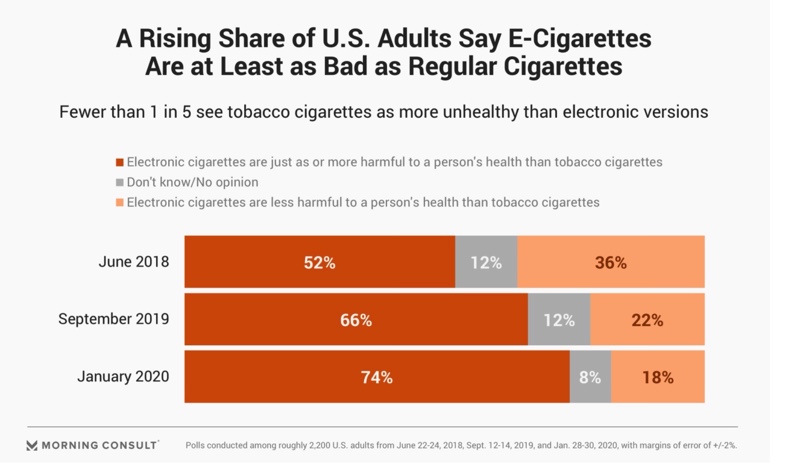Journal retracts study claiming e-cigarettes kill 650,000 people a year
As our report on vaping showed, Minnesotans, especially the youth, are heavily misinformed about the risks associated with e-cigarettes and other vaping products.
In 2020, only 18.2 percent of Minnesota youths said they considered e-cigarettes to be less harmful than regular cigarettes, down from 35.2 percent of respondents in 2017.
That trend is not specific to Minnesota. Nationally, the number of people who consider e-cigarettes and vaping to be equally or even more harmful than cigarettes has been growing in recent years, leading to a decline in the number of people switching from traditional cigarettes to e-cigarettes.

Why is this so?
The big culprit is misinformation –– anti-tobacco activists, in their quest for a nicotine-free society, continue to spread information demonizing e-cigarettes and other less harmful vaping products.
Exhibit A:

Take, for example, a recent study that heavily overestimates the risk associated with vaping. The study, which has since been retracted for spreading misinformation, showed results claiming that vaping kills as many as 650,000 people a year.
What scientific evidence really says about e-cigarettes and vaping
The fact of the matter is that, unlike traditional cigarettes, vaping allows users to consume nicotine in vapor form. This means that users inhale little to no toxins like the ones produced when cigarettes are burned and are associated with cardiovascular and respiratory illnesses and deaths. So relatively speaking, vaping is significantly much safer than smoking –– up to 95 percent.
While there have been cases of deaths and illnesses associated with vaping, these cases have been found to be due to THC-laced products that were flooding the market. Indeed e-cigarettes are not without their risks, but they present a better alternative that could reduce the harm caused by traditional cigarettes, especially among adults that already smoke or young people that are more likely to start smoking.
And if the aim is to reduce public health harm caused by smoking, it makes little sense to wage a war against safer alternatives to cigarettes.